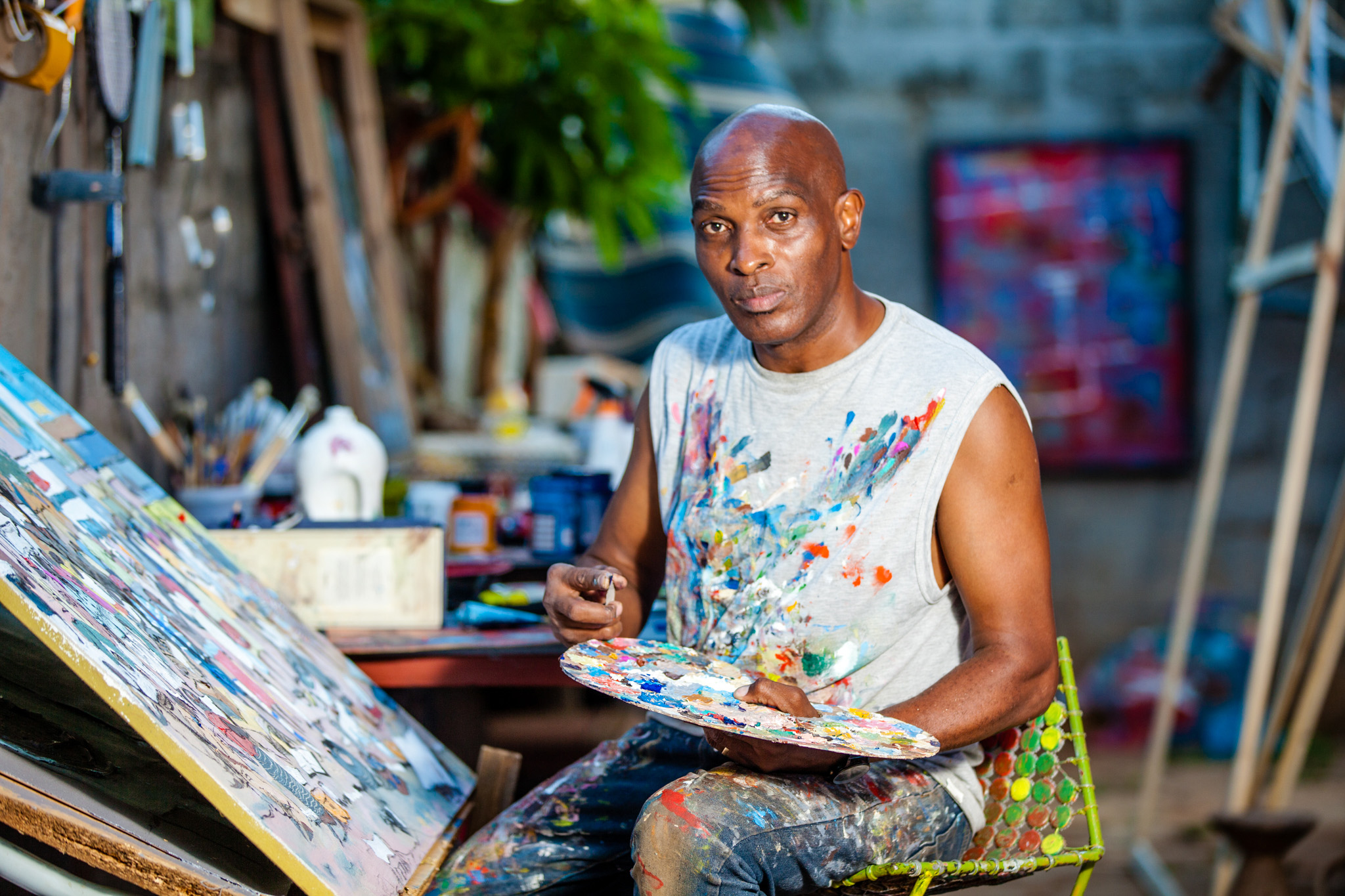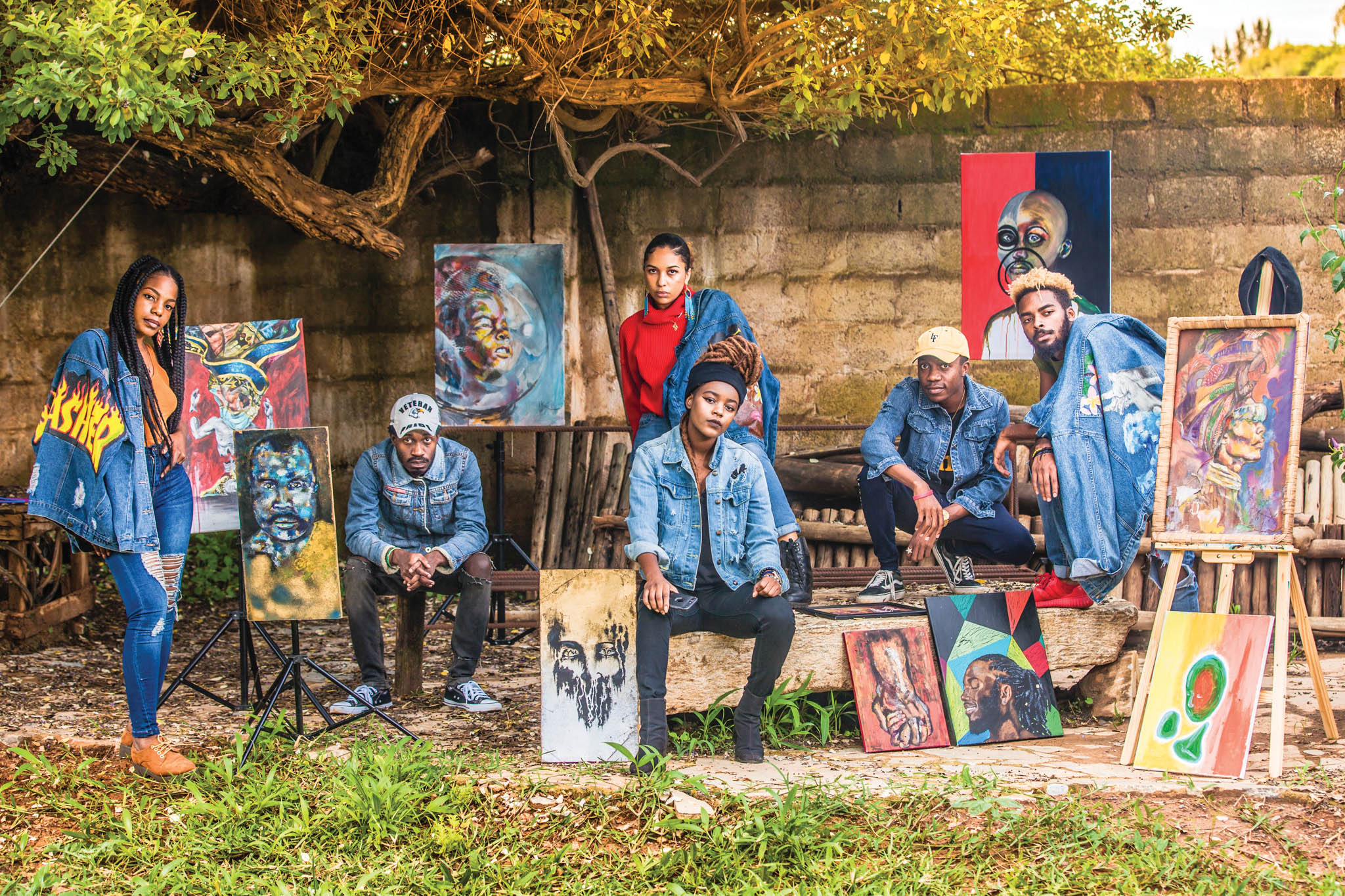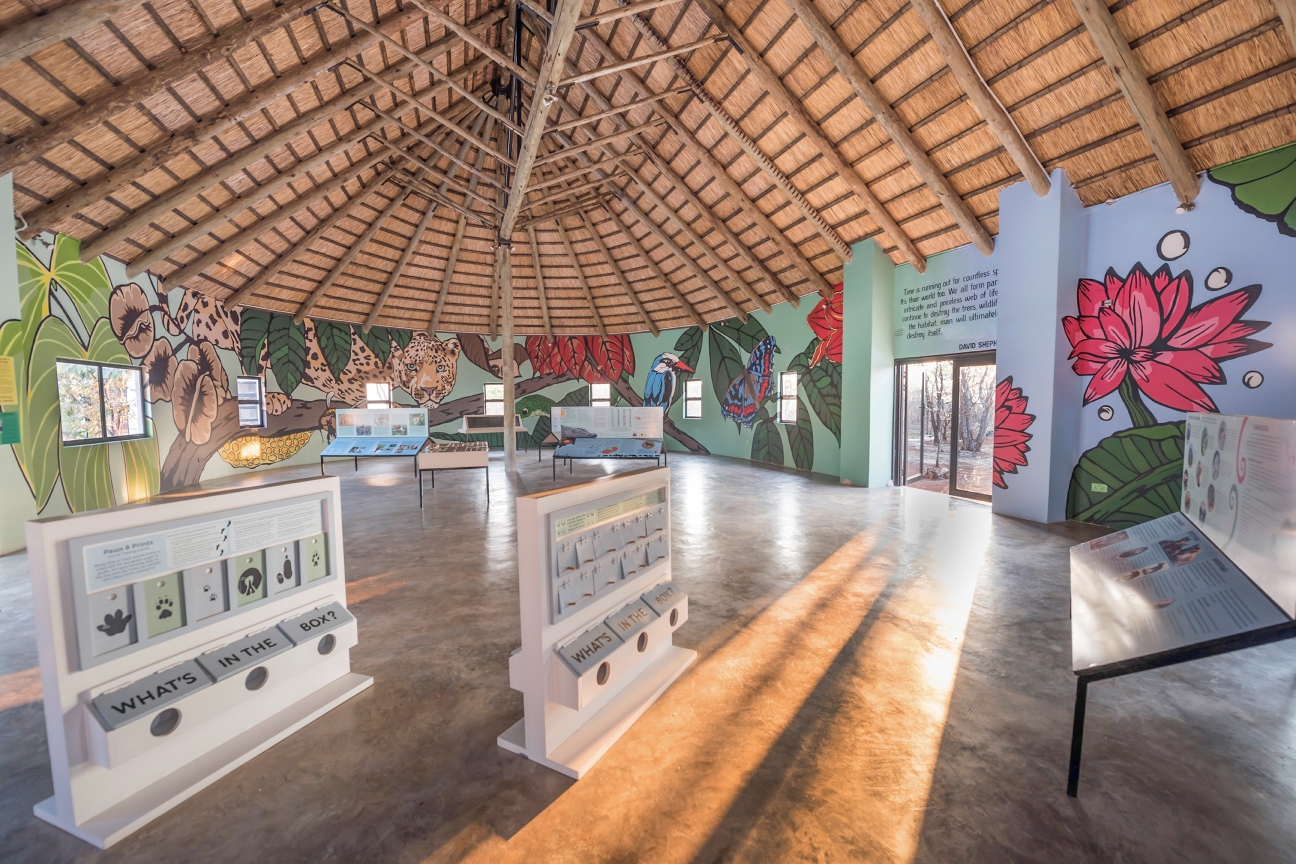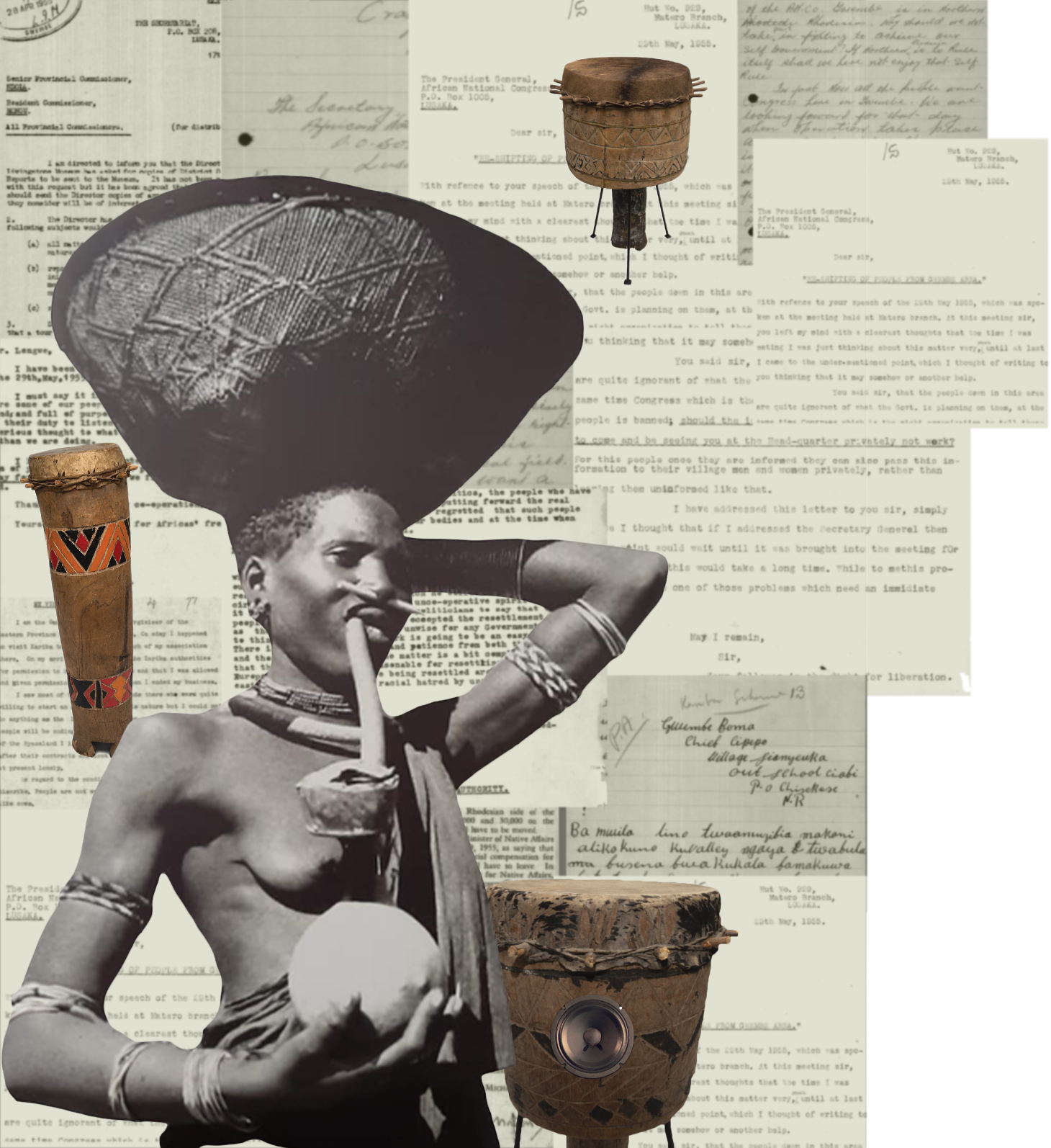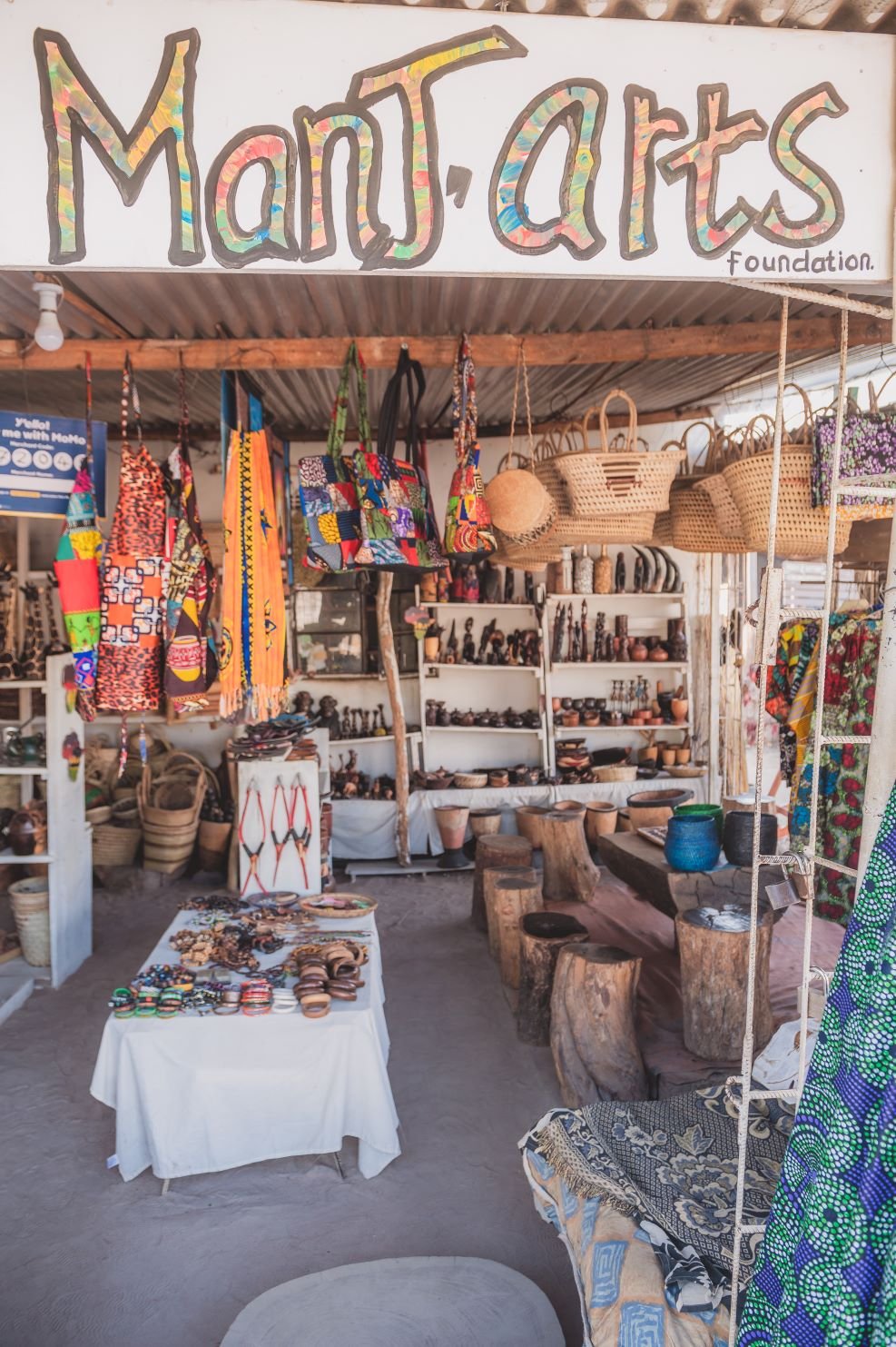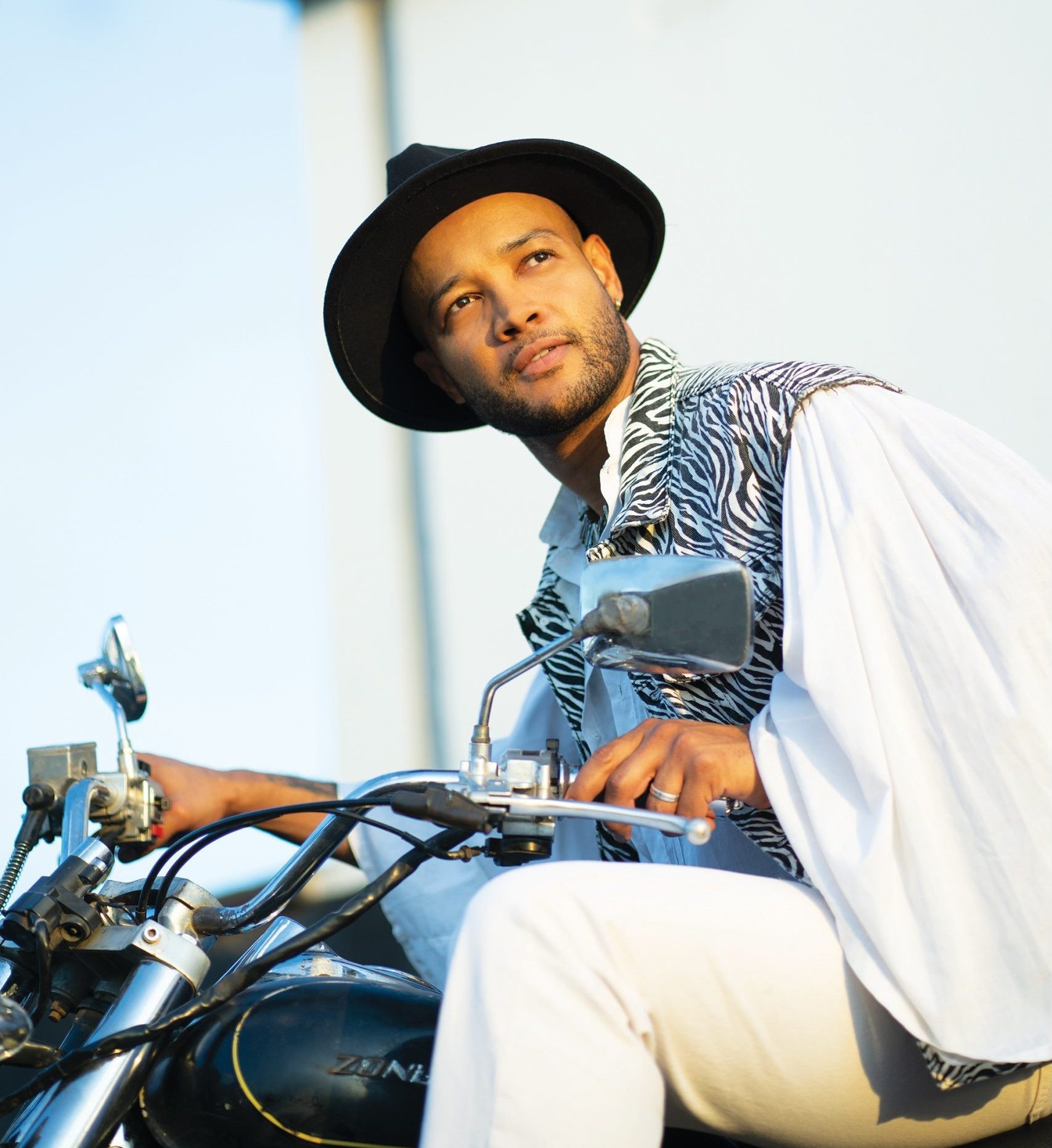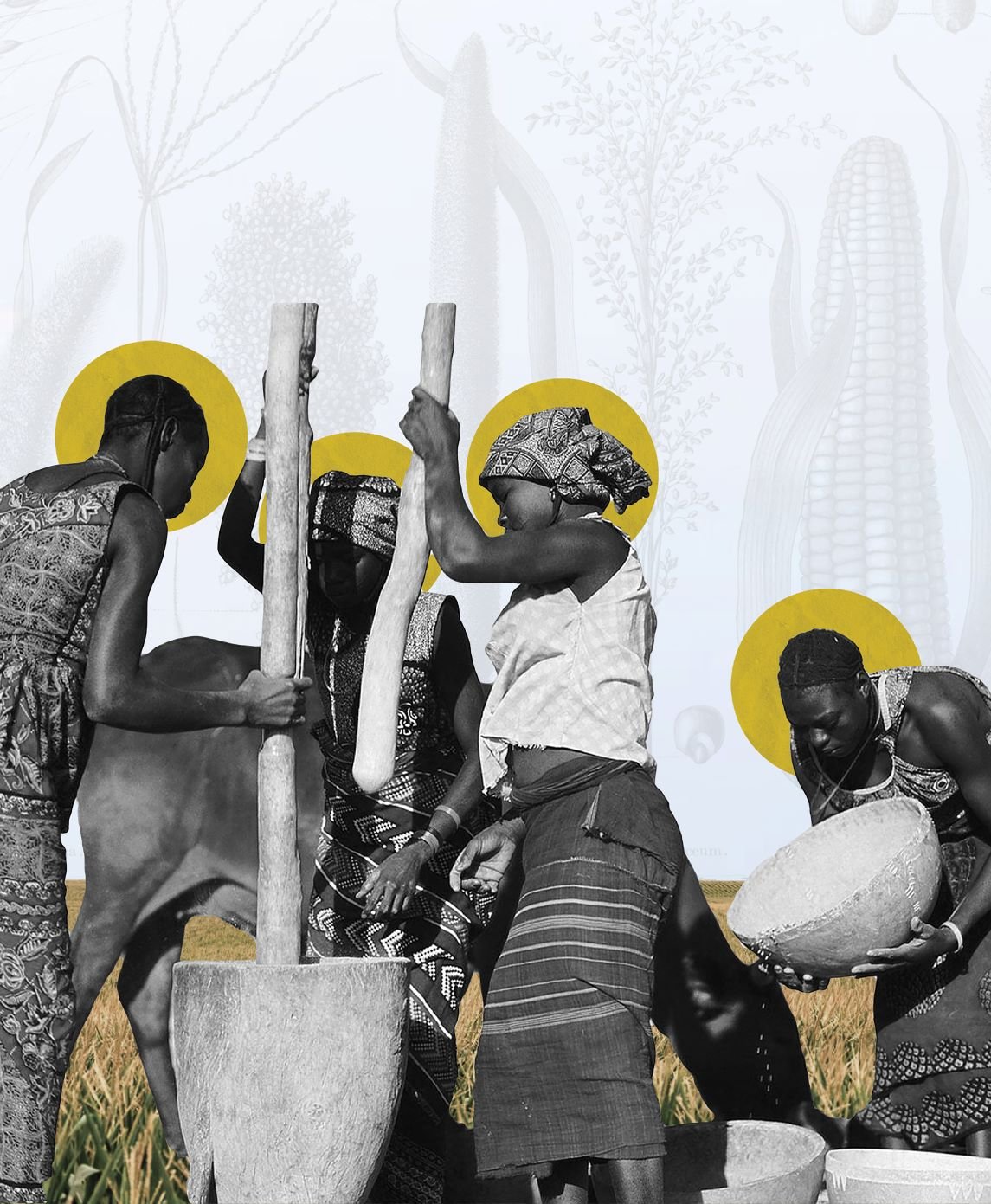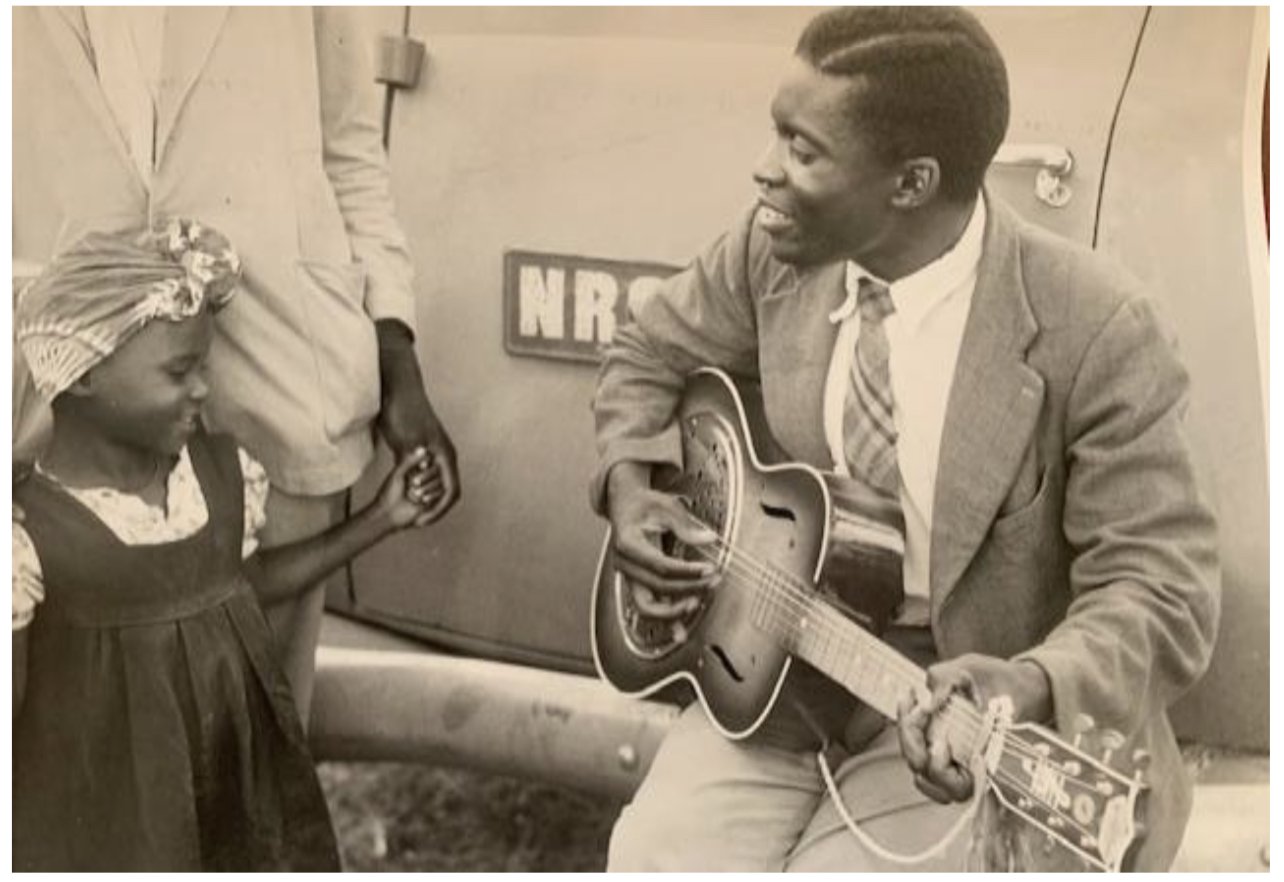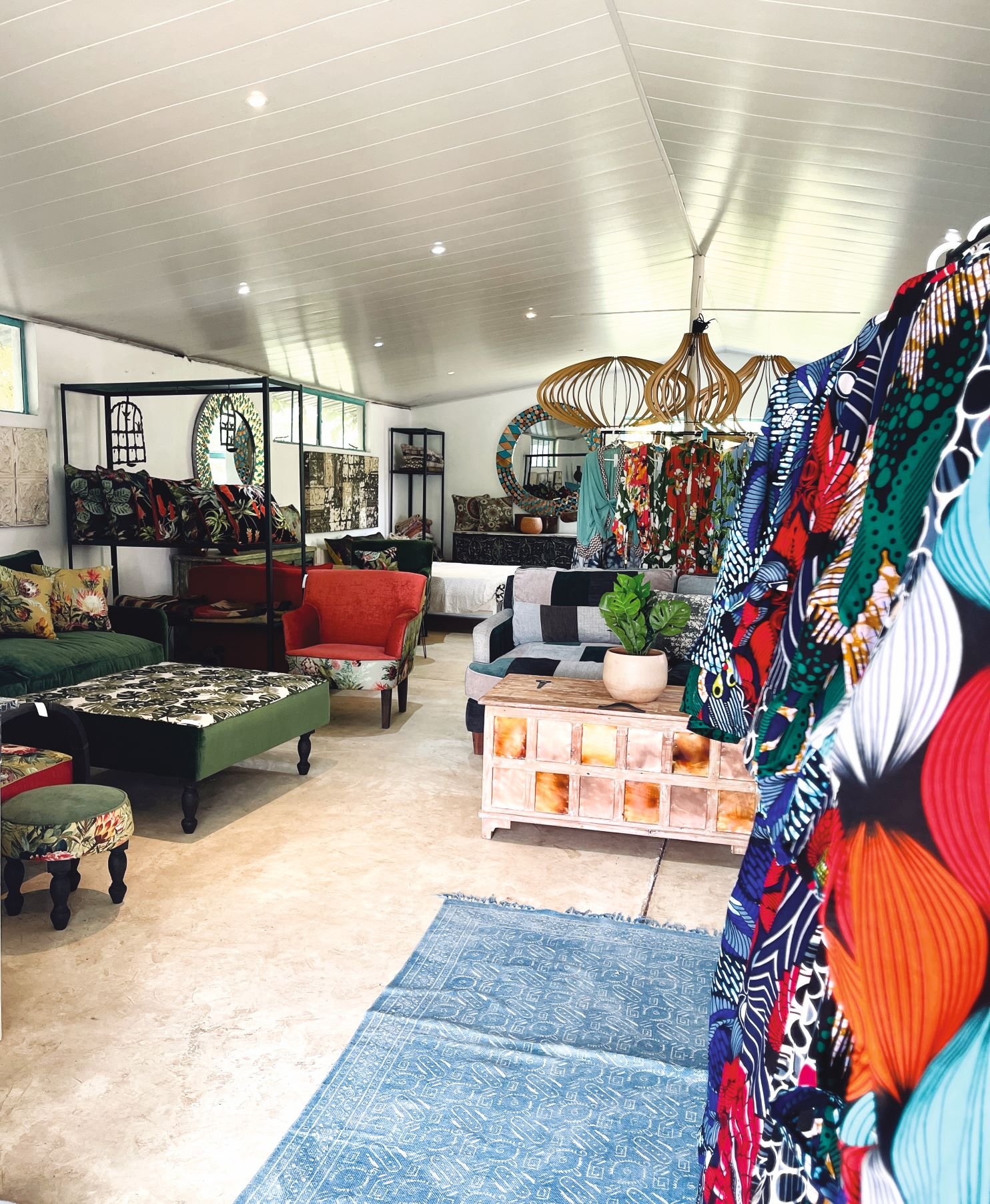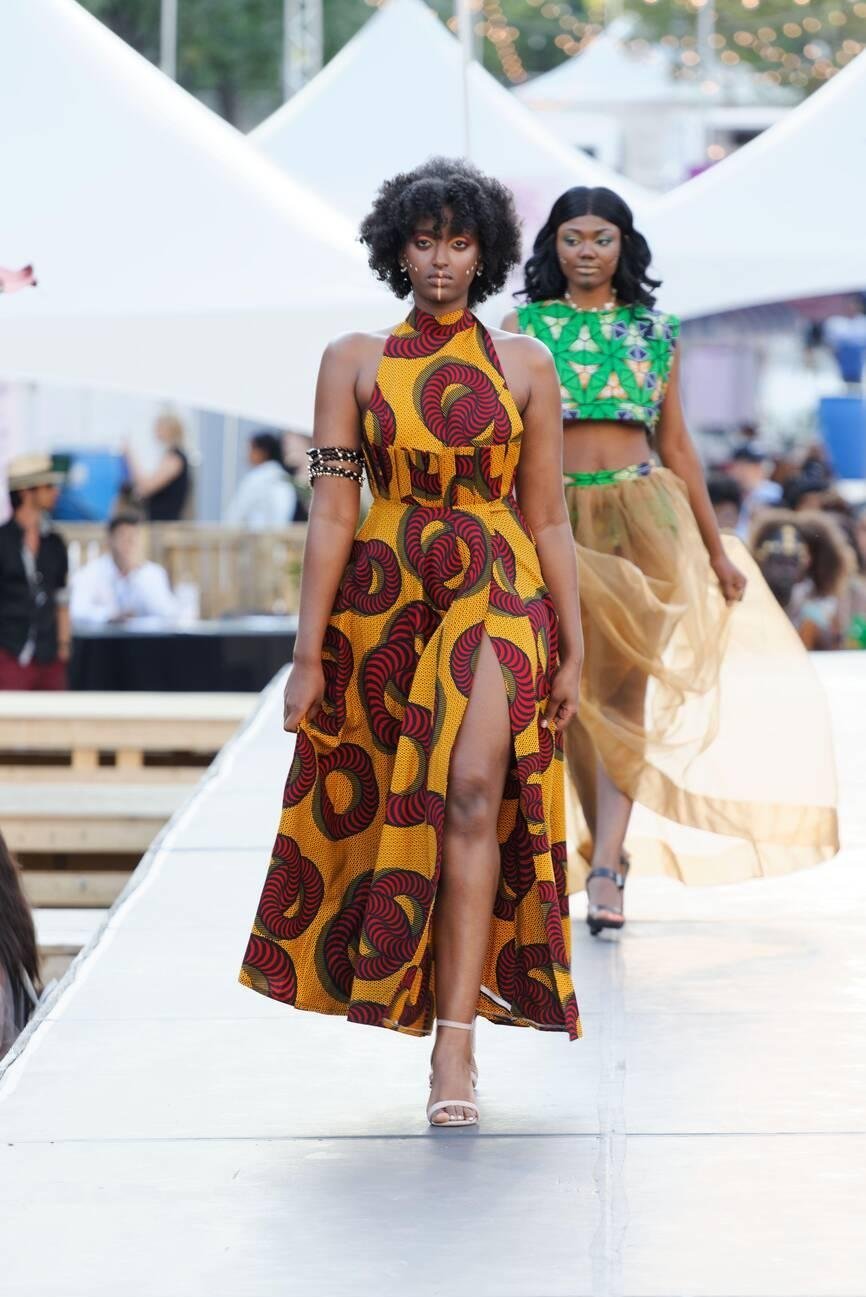Mulenga Chafilwa is a visual artist who is well known for producing artwork that is socially conscious and speaks to the current times. He believes that he was born an artist, saying, “I have pondered whether artists are born or made…I guess I was born one but at age seven is when I got my first set of watercolour paints.” Born into a family of six, he was more inclined towards drawing and art in general. His journey as an artist’s began like most artists as he shares, “We all start by using the pencil, when I was 11 I used charcoal on the walls of a partially demolished house on the property my family owned. I later graduated to watercolours and anything that produced colour like, vegetables and other plants. I would use tomato plant leaves to give me green and mulberries for a rich, deep purple. In college I was exposed to artists’ inks, pastels, gouaches, acrylics and oil paints.”

Mulenga and art have always had near misses in his younger days, he tells me. Thanks to a case of appendicitis and a subsequent operation, he missed the chance to join the art class at his school. After transferring to a new school the next year he tried to get into the art class but to no avail. After completing secondary school Mulenga got a job as a clerical officer but he still had the desire to get into a formal arts programme.
Eventually, Mulenga resigned from his job and applied to Evelyn Hone College. At the time, he didn’t realise that the programme at the college was an art teachers’ diploma programme and he had no desire to teach, but he wanted so badly to be close to art. Mulenga started exhibiting in galleries while still enrolled in art teachers’ training in 1991. After his exposure and interaction with other artists he found himself gaining a greater appreciation for acrylic paints. Before he knew it, his work was never complete without a touch of artists’ charcoal and drawing ink. This helped form his signature style. “My work is now almost always executed in mixed media. I use acrylic, charcoal, pastels and drawing ink. This stems from my thinking that a work of art should possess an element of movement. The arrangement of the elements should be interesting and aesthetically pleasing to the eye that happens to engage with the artwork, ” Mulenga shares.
When describing how he balances making art that has socially conscious messaging and facing backlash from critics Mulenga says, “different people react to different situations in different ways. I tend to consciously or unconsciously highlight features in my immediate environment that are a ‘societal nuisance.’ I do it without necessarily attracting attention to myself as the artist. It is done more like a caricature where one brings out serious issues, sometimes with a touch of humor. The audience will at times laugh at the composition, laugh at the message or indeed laugh at themselves.”
He goes on to explain, “I haven’t experienced a situation where an individual or particular interest group has confronted me over my work. Going forward I hope I can work on specific subject matters that would have my work seen by the specific target audiences.” Mulenga’s work is often collected by individuals or particular corporate spaces, which are not necessarily his primary target audiences. “Only those close to the work may be privy to interact and interpret the work as they feel. This is why it’s necessary to have more art in public spaces for the messages in the art to reach a wider audience.”

Helping him achieve this goal of reaching wider audiences is the community work Mulenga does with young children. He believes that art is therapeutic and can help children from vulnerable backgrounds, in addition to being a fun activity. Mulenga enjoys helping children tap into their artistic sides. He finds fulfillment in working with young people and seeing the artwork they produce. It is gratifying for him to see the pride they have in their work and to see them venture on the path of a career in the arts.
Mulenga’s own path seems bright and promising. He feels 2019 has started on a good note. He is more focused on his art and has received several new commissions. He is looking forward to an annual passion project of his, a children’s workshop in Mfuwe, hosted by Mfuwe Lodge. In August he hopes to conduct the Augustudio workshops he initiated for young artists. In September he is scheduled to hold a solo exhibition under the start Foundation’s 37D Gallery. Mulenga is positive more opportunities will arise as the year progresses.
Mulenga is a prime example of an artist who has been exposed to the world and travelled but stayed true to his roots. He borrows from a Bemba proverb – A child that does not travel or is not well exposed, praises the mother’s cooking. Explaining the proverb he says that it’s not until you travel can you get to see what others have achieved and reflect on your own situation. In doing so Mulenga is able see what steps to take to leave a creative and artistic footprint in the life of visual arts in Zambia.
